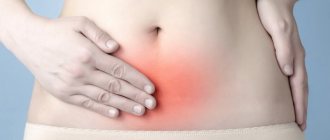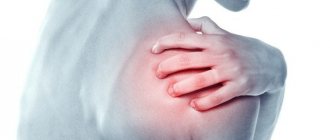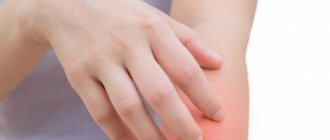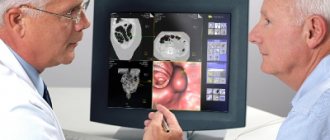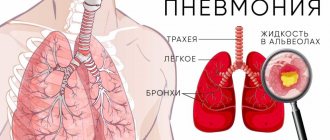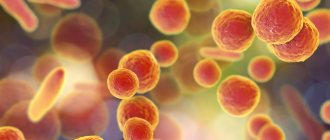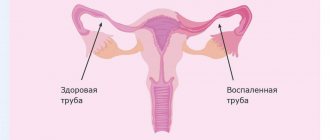Urologist
Mkrtchyan
Karen Gagikovich
14 years of experience
Candidate of Medical Sciences, member of the European Association of Urology and the Russian Society of Oncourologists
Make an appointment
Orchitis in men is an inflammatory process in the testicular tissues, which is caused by a bacterial or viral nature, as well as trauma to the testicles. The risk group includes men of all ages. Orchitis in men often appears at the age of peak sexual activity. The cause of orchitis at this age lies in the greatest likelihood of infection. In childhood, orchitis most often has a viral nature. Infection with sexually transmitted diseases, one way or another, is accompanied by inflammation leading to orchitis. Orchitis in adult men over 50 years of age develops against the background of dysfunction of the genitourinary system.
Symptoms and signs of orchitis
Symptoms of orchitis in the classical manifestation depend on the severity of the pathological processes and the cause of the development of the disease. Common symptoms of orchitis:
- weakness;
- high fever and chills;
- headache;
- muscle aches.
Acute orchitis, as a rule, develops rapidly, literally in a couple of days.
Symptoms of testicular orchitis:
- increasing size;
- sharp pain decreases when lying down;
- hyperemia of the skin over the affected testicle;
- severe swelling that does not allow palpation of internal structures;
- copious secretion of secretion that has an unpleasant odor and a specific yellow-green tint;
- enlarged lymph nodes in the groin are likely;
- dysfunction of urination - pain, frequency of urges, etc.
Chronic orchitis has stable symptoms. Symptoms of orchitis in chronic men:
- increased temperature during exacerbations;
- the presence of nagging and aching pain that intensifies during physical activity, sexual intercourse and defecation;
- pain is localized in the groin, perineum and testicle;
- the presence of blood in the semen indicates the onset of complications.
Testicular orchitis accompanies epidemic mumps. The first symptoms of orchitis in men against the background of a mumps epidemic are general weakness, fever and chills, difficulty swallowing and swelling in the ear area. In this case, irreversible damage to the testicle often occurs.
Causes of orchitis
Infectious causes
- Infection due to mumps. This is the most common cause of orchitis in adolescent and adult men. According to statistics, an inflammatory process in the tissues of the testicle develops in every 3-4 patients with mumps. Infection occurs hematogenously: the paramyxovirus spreads through the blood throughout the body and affects various glands of the body (lacrimal, pancreas, mammary, testicles);
- Complication of other common infectious diseases, which include scarlet fever, influenza, chicken pox, etc. In exactly the same way as in the previous case, the virus reaches the testicles through the bloodstream and begins to actively multiply;
- Sexually transmitted diseases (STIs) also quite often provoke an inflammatory process in the testicles. Syphilis, chlamydia, gonorrhea, ureaplasmosis and mycoplasmosis;
- Bladder catheterization (placement of a catheter in the cavity of the bladder to remove urine) for a long period of time;
- Penetration of infection into the body of a newborn through the hematogenous route through the vessels of the umbilical cord.
Non-infectious causes
- Testicular injury;
- Surgery in the testicular area;
- Adenoma (hyperplasia) of the prostate gland;
- Systemic diseases (sarcoidosis, hemorrhagic vasculitis).
Causes of occurrence and development
Inflammation of the testicles has a multifactorial nature. There is a possibility of developing testicular orchitis due to infection with bacteria and viruses, while taking medications, due to an unknown cause, and so on.
In childhood, the bacterial nature of the disease originates in congenital anomalies or dysfunctions due to the accumulation of urine residues. All this contributes to the development of urinary tract infections that are prone to relapse.
All causes of testicular orchitis in men are divided into several groups:
- viral infections - mumps, measles, rubella, chickenpox or Coxsackie virus, adenovirus or cytomegalovirus;
- urological pathologies - bacterial infections from neighboring inflamed organs (prostate, appendages, vesicles), as well as those entering through the blood from other foci of inflammation;
- traumatism – urological manipulations or operations, diagnostic procedures that violate the integrity of the membranes on the mucous membrane. This also includes insect or animal bites, blows and mechanical damage. This group of reasons can cause suppuration;
- sexually transmitted infections are any diseases acquired through sexual contact during a man’s sexual activity. The virus comes from the urethra only through contact with an infected person. The most common are chlamydia, mycoplasma, gonococci, trichomonas and other infections.
Causes of testicular inflammation
The content of the article
Men over 45 who have a urinary tract infection or who have a catheter are at increased risk.
Known causes of orchitis:
- Bacteria - most often Escherichia coli, staphylococcus, streptococcus and Klebsiella pneumoniae. Prostate infection and epididymitis (inflammation of the testicles) may occur.
- Viruses - in almost 70% of cases, the cause is mumps - this is an infectious viral inflammation of the parotid glands that swell on one or both sides of the face.
- Sexually transmitted diseases: gonorrhea, chlamydia.
Routes of infection and risk factors
There are several ways of contracting orchitis, which depend on the causes of its occurrence. When infected by viruses, the infection process is hematogenous in nature. When infected with sexually transmitted diseases, the only route of infection is contact.
Risk factors for developing the disease are:
- HIV status;
- diabetes;
- severe form of infectious diseases;
- other factors of immunosuppression;
- taking hormones, chemotherapy or immunosuppressants and others.
Preventive measures
In order to avoid the development of these diseases, you must follow simple rules:
- lead an active life, constantly play sports;
- eliminate blood stagnation during sexual abstinence through physical exercise;
- eat right, including foods high in minerals, beneficial microelements and proteins in your diet;
- timely treat all diseases of an inflammatory and infectious nature;
- give up cigarettes and alcohol consumption;
- lead a regular intimate life, do not change partners frequently, avoid unprotected and interrupted sexual intercourse;
- avoid overheating and hypothermia of the body.
Performing preventive procedures will minimize the risk of orchitis and epididymitis. However, it is worth remembering that at the slightest suspicion of the development of pathology, you should immediately consult a doctor. Only timely diagnosis and treatment will avoid complications.
Complications after orchitis
Acute orchitis leads the patient to a urologist to receive adequate treatment. In this case, the disturbance of spermatogenesis reaches almost 90%, but after a year from the moment of cure, the functions are restored.
Timely and adequate treatment of orchitis does not allow complications to develop. The following are considered complications of orchitis:
- transition to a chronic form;
- infertility;
- testicular atrophy;
- sepsis;
- abscesses and others.
When to see a doctor
Treatment of testicular inflammation is carried out by a urologist. You should make an appointment with a specialist if you suspect orchitis, as well as if the symptoms described above appear.
Treatment of testicular inflammation
If these symptoms are noticeable, you should consult a urologist who will do a history, physical examination, urine culture, blood tests, and ultrasound.
If orchitis is bacterial in nature, treatment is carried out with antibiotics for 10 to 14 days.
On the other hand, if the cause is mumps (a virus), then analgesics and nonsteroidal pain relievers (ibuprofen, naproxen, or acetaminophen) are taken. The resulting inflammation will subside within 1 to 3 weeks.
If fever, nausea, and vomiting occur, the patient may be admitted to the hospital for intravenous antibiotics.
Diagnosis of orchitis
Symptoms and treatment of orchitis in men are compared during the diagnostic process. A careful history and physical examination can make a diagnosis of orchitis. In this case, to identify the causes of infection, it is necessary to carry out diagnostic procedures:
- rectal examination with fingers of the prostate gland;
- consultations with an oncologist or surgeon;
- laboratory tests - PCR analysis for gonococci and chlamydia, urethral smear, analysis for bacterial pathogens and drug sensitivity, study of ELISA methods for the mumps virus, general blood test shows inflammation;
- instrumental studies - ultrasound of the scrotum using Doppler, MRI of the pelvic organs, diaphanoscopy.
Symptoms and treatment of orchitis require differential diagnosis for diseases such as testicular torsion or pinched inguinoscrotal hernia.
Causes
Orchitis can be caused by a bacterial or viral infection. Sometimes the cause of orchitis cannot be determined.
Bacterial orchitis
Most often, bacterial orchitis is associated with or results from epididymitis. Epididymitis is usually caused by an infection of the urethra or bladder that spreads to the appendages.
The infection is often caused by an STI. Other causes of infection may be due to the fact that there are congenital anomalies in the urinary tract or that operations or manipulations have been performed on the urethra (for example, TURP of the prostate with prolonged wearing of a urethral catheter).
Viral orchitis
The mumps virus usually causes viral orchitis. Almost one-third of men who develop mumps after puberty develop orchitis, usually four to seven days after the onset of mumps.
Other causes of orchitis
- reactive post-traumatic inflammation due to damage to the groin area and scrotum;
- specific infections: syphilitic or tuberculous lesions of the testicles.
Treatment
Treatment of orchitis in a hospital is carried out only in the presence of suppuration and other purulent-type complications that are specific to immunosuppression. In this case, treatment of orchitis requires bed rest and wearing a suspensor. In the process of treating orchitis in men, it is important to follow a diet - excluding spicy and alcoholic drinks while increasing drinking. Increased drinking regimen promotes detoxification and rapid flushing of the pathogen from the body.
Treatment of testicular orchitis begins with standard methods without obtaining bacterial cultures and PCR analysis results. If the disease is viral in nature, treatment of orchitis with antibiotics forms the basis of therapy. If a sexually transmitted infection is detected, simultaneous treatment of the sexual partner is required.
Complex therapy is based on the following points:
- drug therapy - broad-spectrum antibiotics for orchitis are used for a course of up to 4 weeks, painkillers, non-steroidal anti-inflammatory and antipyretic;
- local measures - cold is applied to the site of swelling in the first hours, absorbable compresses in the future, physiotherapy: electrophoresis, laser and magnetic methods, UHF against exacerbations;
- surgical methods - surgery for orchitis is performed during suppuration. Sometimes incisions are made in the primary stages of the disease.
ethnoscience
How to treat orchitis with folk remedies? Tinctures and lotions can be used only after the permission of the attending physician, since medicinal herbs are included in a large number of medications for the treatment of inflammation. Infusions are made from anti-inflammatory herbs and herbs. Lotions are based on propolis, milk, cabbage leaves and vinegar, honey and flax seeds.
What is the treatment for inflammatory diseases of the scrotum?
Treatment of epididymitis, orchitis, orchiepididymitis and deferentitis is carried out primarily with antibiotics, since their main cause is various infections. The choice of antibiotic for an acute inflammatory process is carried out empirically, taking into account the known age-related characteristics of the causative infections. Upon receipt of the results of microbiological studies and analysis of the sensitivity of the isolated microflora to antibiotics, it is possible to adjust antibiotic therapy, change its duration, dosages of drugs, and sometimes the drugs themselves and their combinations.
Along with antibiotics, non-steroidal anti-inflammatory drugs (indomethacin, diclofenac, Celebrex, etc.) are prescribed in order to reduce inflammatory swelling, pain and quickly reverse the development of inflammatory changes. For severe pain, a blockade of the spermatic cord with a local anesthetic (lidocaine, prilocaine, marcaine) is used, which significantly reduces pain. All patients are recommended to wear tight panties (swimming trunks) that tighten the scrotum during treatment. This promotes better blood and lymph flow in the scrotum and accelerates the reverse development of inflammation.
In the presence of ulcers or abscesses of the testicle and its epididymis, as well as in chronic recurrent epididymitis, which is difficult to treat, in the case of testicular tuberculosis, surgical treatment is used. It may involve opening and draining abscesses, partial or complete removal of the testicle and/or its epididymis. The use of various methods of physiotherapy for inflammatory diseases of the scrotal organs has not proven its effectiveness in correctly conducted scientific studies and is not included in the international standards for the treatment of epididymitis, orchitis and orchiepididymitis. In this regard, we do not use physiotherapeutic methods for treating these diseases in our practice.
Prognosis and prevention
To preserve the functions of spermatogenesis, it is necessary to be observed by a urologist during the treatment of testicular inflammation. Cases of complete infertility or complications are associated with insufficient diagnosis. The highest probability of infertility occurs after orchitis that occurs against the background of mumps.
Everyone knows the simple classical truth - any disease is easier to prevent than to treat. This is why it is so important to follow simple measures to prevent the development of orchitis:
- monogamy of sexual contacts or adherence to contraceptive protection in case of possible contact with a casual sexual partner;
- protective equipment when engaging in traumatic sports and compliance with safety measures when engaging in such sports;
- regular visits to the urologist if there is discomfort or other doubts about health;
- control of chronic urological diseases - timely preventive treatment;
- vaccination against mumps in childhood.
Symptoms of diseases
Both pathologies can occur in two forms. Signals about the development of the acute stage of orchitis or epididymitis will be:
- a feeling of severe pain in the testicles (often it radiates to the sacrum, lower back and groin);
- enlargement of one side of the scrotum (it will also be hot to the touch);
- loss of appetite, weakness and nausea;
- severe pain in the head;
- fever up to 39 degrees and feeling chills.
If treatment was not carried out on time and efficiently, then a chronic form of pathology develops. A man suffering from orchitis feels only mild pain in the testicular area. It is felt when touched. A patient with epididymitis suffers from severe pain in this area, which is more often felt when running and walking. At the same time, the body temperature is almost always above 37 degrees. Pathologies can provoke a decrease in the level of secretion produced by the testicle, which leads to infertility.
Treatment of orchitis
Treatment depends on the underlying cause. So, antibiotics are aimed at treating bacterial orchitis. If the cause is an STI, then the sexual partner also requires examination and treatment. It is important to complete the entire course of therapy for a complete recovery and to avoid relapses.
Treatment for viral orchitis is aimed at relieving symptoms. Your doctor may recommend the following:
- Painkillers, anti-inflammatory drugs
- Complete rest, bed rest
- Elevated position of the scrotum
- Applying cold compresses
Improvement in general well-being usually occurs within a week, while soreness in the scrotal area may persist for a little longer.

